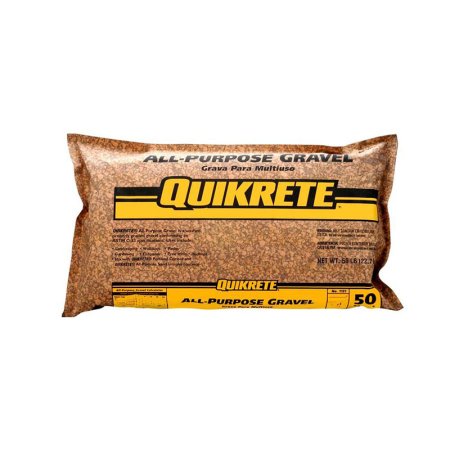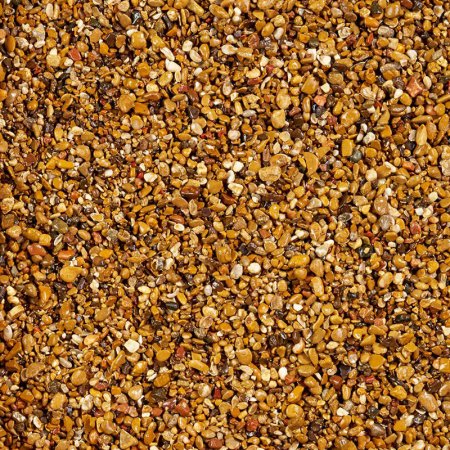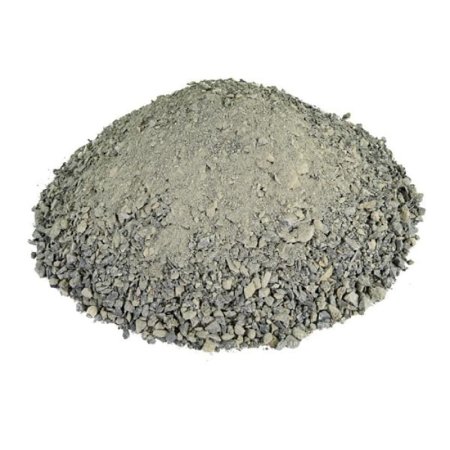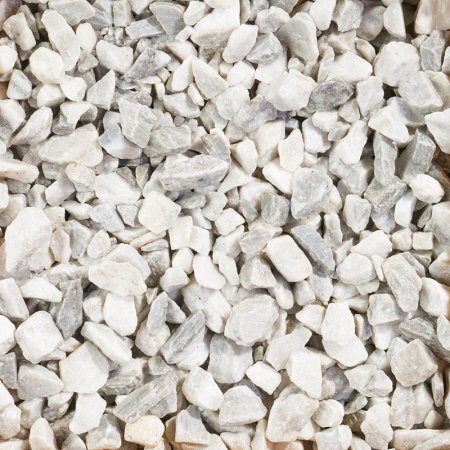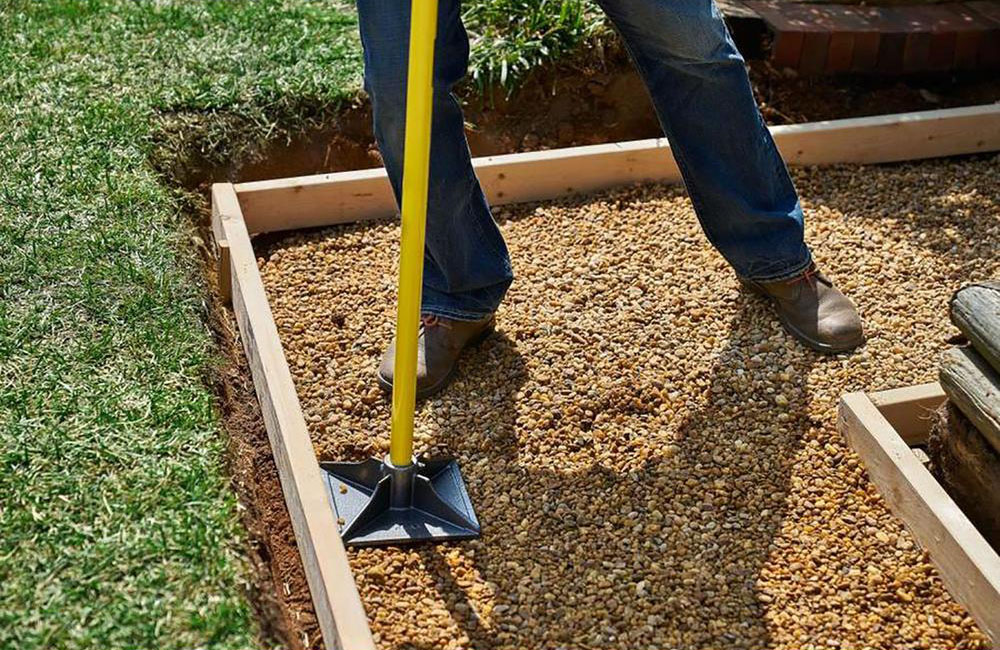
We may earn revenue from the products available on this page and participate in affiliate programs. Learn More ›
Gravel driveways have many advantages over a traditional paved driveway. For example, gravel driveways are cheaper to install and are also permeable—making them more environmentally friendly while also helping to prevent drainage problems.
From standard drainage crushed gravel to natural pea gravel to elegant marble chips, there are a surprising number of materials to choose from when forming a gravel driveway. With so many options available, choosing the right one can be confusing. This guide digs deep into gravel driveways and identifies factors to consider when planning a new gravel driveway. We also provide a list of some of the best gravel for driveway surfaces and where to find them.
- BEST OVERALL: Quikrete 50 lb. All-Purpose Gravel
- BEST VALUE: Vigoro Bagged Pea Gravel Pebbles
- BEST AESTHETICS: Vigoro Bagged River Pebbles
- BEST CRUSHED STONE: Southwest Boulder & Stone 30 cu ft Decomposed Granite
- BEST UPGRADE: Vigoro Bagged Marble Chips
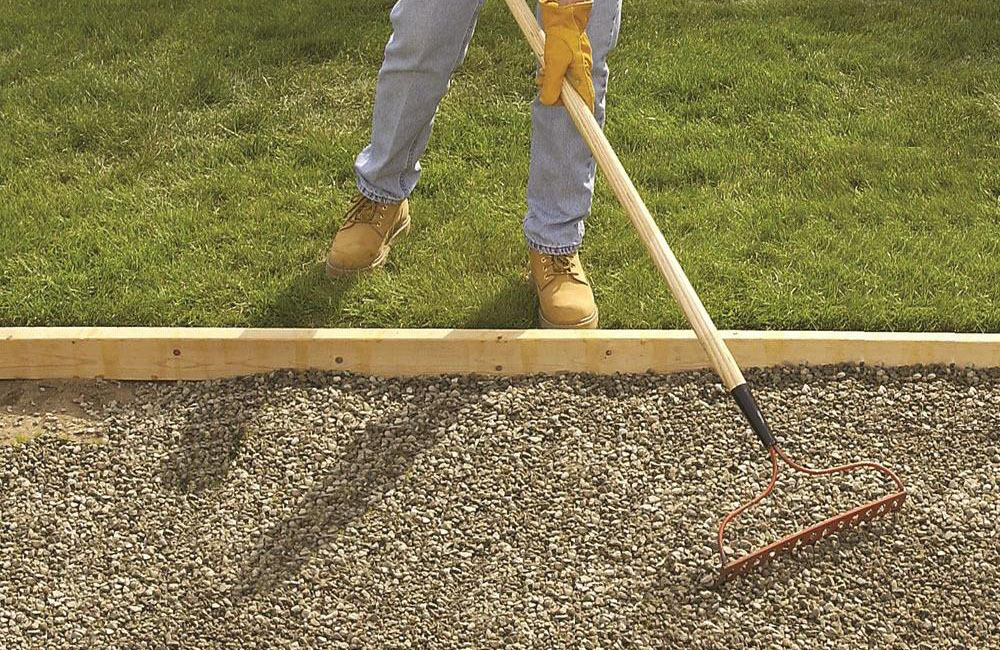
What to Consider When Choosing the Best Gravel for Driveways
While choosing between crushed stone and naturally formed gravel is crucial when deciding on the right material, there are a few additional factors to consider, including the gravel’s durability, drainage, shape, and color. Keep reading to learn more about these attributes of driveway gravel.
Types of Gravel
Gravel is available in two main types: crushed stone and naturally formed gravel. Per its name, crushed stone is created by taking larger pieces of stone or rock and crushing it into smaller pieces. The crushing process typically gives the pieces a white or gray color.
Naturally formed gravel, in comparison, consists of natural stone that has been shaped from the natural erosion of larger rocks (some gravel is formed in a stream or riverbed). Natural gravel comes in a variety of different types, ranging from river rock to pea gravel.
Durability
Natural gravel, such as pea gravel, has a rounded shape and smooth texture. Because of this, it’s more likely to migrate out of the driveway when a car rolls over it. As such, natural gravel driveways often need edging to keep the gravel in the driveway.
Crushed stone typically has irregular sizes, a rough texture, and angular edges that are created during the crushing process. This allows the individual pieces of stone to interlock with each other, preventing them from moving as traffic rolls over the driveway. As such, crushed stone requires less maintenance and refreshing than natural stone.
Drainage
One of the advantages of going with a gravel or stone driveway versus a solid concrete or macadam (tar and chip) surface is that gravel offers better drainage. That said, different types of gravel drain better than others. Larger gravel that’s 1 inch or more in diameter creates gaps between the rocks. These gaps allow water to easily pass through, resulting in better drainage. Smaller gravel that’s less than 3/4 of an inch in diameter or that has a significant amount of dust mixed in it will compact more easily than gravel with larger chunks, creating fewer gaps for the water to pass through.
Shape and Color of Gravel
Gravel comes in many shapes and colors that impact the aesthetics of your home. While crushed stone may be more functional than natural gravel, its drab, gray color gives a utilitarian look that can detract from a home’s curb appeal. There are some crushed stone products, such as marble chips, that are more attractive; however, they’re considerably more expensive.
With its rounded shapes and earth tones, natural stone such as pea gravel and river rock is more attractive than crushed gravel, which is why it’s often also used in landscaping applications.
Amount of Gravel
For most driveways, a depth of 4 inches is adequate for a new installation. Most gravel retailers sell gravel in cubic feet. To determine how many cubic feet are needed, measure the length and width of the driveway to determine its total area in square feet. Divide that result by 3 to get the proper amount for the depth, since 4 inches is 1/3 of a foot. The result is the volume of gravel needed to cover the area in cubic feet.
Tips for Using the Best Gravel for Driveways
When laying down a new gravel driveway, it’s important to follow a few important guidelines to get the best results. One of the cons of a gravel driveway is having to deal with pesky weeds. Before laying down a driveway, consider adding a weed barrier to help prevent weed growth. It will save you time killing weeds later on.
When installing gravel, take a layered approach. A gravel driveway should consist of a base layer of 6-inch stones. From there use at least one more layer of 2.5- to 3-inch stones before adding the top layer. Layers ensure a longer-lasting driveway and better drainage.
To maintain your driveway, periodically rake it to even out any inconsistencies that may form when driving over it and to remove leaves, sticks, and other debris that can mar its look. You can also install gravel stabilizers before laying the gravel to prevent it from migrating.
- Install a weed barrier before laying the gravel
- Use base layers of larger gravel to improve durability and drainage
- Install gravel stabilizers to prevent the gravel from migrating
Our Top Picks
The list below features some of the best driveway rock on the market. It includes gravel that provides optimal stability and excellent drainage qualities, as well as some of the most visually attractive options.
Best Overall
Quikrete 50 lb. All-Purpose Gravel
Pros
- Attractive appearance
- Drains well
- Smaller stones are easier to lay
Cons
- Smaller pieces might migrate
Product Specs
- Type: Natural
- Size: ⅜ inch
- Texture: Smooth
A mix of colors that give it a natural appearance coupled with its small size and smooth rounded feel makes Quikrete All-Purpose Gravel one of the best choices for those installing a gravel driveway. The small size of the pebbles creates an even surface that’s both easy to walk and drive on while still allowing for excellent drainage.
This Quikrete gravel is more attractive than crushed stone options, and its small, irregularly shaped pieces help keep it in place. As a result, once it’s packed down, traffic won’t be as likely to push this gravel off the driveway, although installing edging to keep it in place is still a good idea.
Best Bang for the Buck
Vigoro Bagged Pea Gravel Pebbles
Pros
- Larger stone sizes give it better stability
- Brown earth tones add aesthetics
- Offers good drainage
Cons
- More expensive than other gravel options
Product Specs
- Type: Natural
- Size: ½ to 1½ inches
- Texture: Smooth
As pea gravel goes, this product from Vigoro is on the larger end with pieces ranging in size from ½ inch up to 1½ inches. The mix of different sizes helps this pea gravel bind together better than pea gravel that consists of smaller stones. This means Vigoro pea gravel is less prone to being pushed around by traffic (though mixing in a little bit of sand as a binder is still a good idea to improve stability). This product is both functional and beautiful, with its different shades of brown and off-white.
Best Aesthetics
Vigoro Bagged River Pebbles
Pros
- Beautiful natural look
- Excellent drainage
- Smaller pebbles compact well
Cons
- Expensive
- Not as uniform a surface as other gravels
Product Specs
- Type: Natural
- Size: 1 to 3 inches
- Texture: Smooth
Most river rock simply isn’t suitable for driveways. The stones are too large and rounded in shape to create a suitable surface for driving or walking. But, for those who are in love with the idea of a river rock driveway, Vigoro Bagged River Pebbles are a great solution. This gravel consists of river rocks, or rather pebbles, that are between 1 and 3 inches in size. That’s small enough to compact into a form that won’t turn ankles or cause tires to slip.
As for aesthetics, this river rock is hard to top. Its multicolored tones create a natural look. It also happens to be one of the most expensive gravel types.
Best Crushed Stone
Southwest Boulder & Stone 30 cu ft Decomposed Granite
Pros
- Compacts easily
- Creates a stable surface for walking and driving
- Numerous color options
Cons
- Doesn’t drain as well as other gravel
- Small particles can stick to shoes
Product Specs
- Type: Natural
- Size: ⅜ inch and under
- Texture: Rough
Decomposed granite is similar to gravel, but it’s much finer—making it one of the more stable gravel surfaces for a driveway. True to its name, decomposed granite is created from the natural weathering of granite stone. It consists of much smaller pieces that range from ⅜ inch down to the size of a grain of sand. This small size allows the pieces to compact down into a firm surface that’s nearly as stable as concrete. It comes in a variety of different earth tones, making it easy to coordinate with a home’s exterior.
Although it’s permeable, the compacted pieces don’t allow water to pass through as well as larger gravel, which can cause drainage issues. Since some particles are as fine as sand, they can also stick to shoes, allowing it to be tracked into the home or a car’s interior.
Best Upgrade
Vigoro Bagged Marble Chips
Pros
- Elegant look
- Drains well
- Larger stones are more stable
Cons
- Expensive
Product Specs
- Type: Crushed
- Size: 2 inches to 4 inches
- Texture: Jagged
Marble brings elegance to bathrooms and kitchens, so it should come as no surprise that one of the best ways to make a driveway beautiful is by making it out of marble chips. This gravel from Vigoro consists of marble chips that range from bright sparkling white to light gray. And, unlike other products that have smaller chips, this gravel measures about 2 inches in diameter, making it large enough to resist migrating under traffic. Getting that sophisticated look isn’t cheap, though. Like marble countertops and sinks, these marble chips are expensive.
Our Verdict
Durable and reasonably priced, Quikrete driveway gravel is an affordable and attractive option. If your heart is set on a river rock driveway, consider Vigoro driveway gravel for its natural pebble appearance and superior drainage qualities.
How We Chose the Best Gravel for Driveways
Choosing the best gravel for a driveway is really a balance between form and function. While crushed gravel, with its rough texture and angular shape that allows it to interlock and resist erosion, is more durable and functional, its gray color isn’t particularly attractive. In comparison, natural stone, with its rounded edges and smooth texture, is superior aesthetically but is easily pushed around by traffic. In making our decisions, we chose crushed stone products that were the ideal size and shape to create a durable driveway. We also selected natural stone products that would add to a home’s aesthetics while still being functional enough to perform well on a driveway.
FAQs
Still have questions? Read on for answers to some of the most commonly asked questions about gravel driveways.
Q: What size gravel is best for driveways?
Gravel sizes vary significantly, especially when shopping for natural gravel. Choose gravel that’s around 3/4 of an inch in diameter. This size stone is large enough to create a firm base for cars while leaving enough gaps between the stones to allow water to pass through for good drainage.
Q: Is pea gravel good for a driveway?
A pea gravel driveway doesn’t function as well because the stones are generally smaller and rounded, which allows them to move around more. Even so, pea gravel is a more attractive option than standard gray gravel. It’s best when used as a thin layer over a more stable base of crushed gravel.
Q: What depth should gravel be for a driveway?
Gravel should consist of a base layer that is about 6 inches thick with a surface layer that is about 2 inches thick.
Q: Can I add cement to driveway gravel?
While it is possible to lay cement over existing gravel, it’s usually not a good idea, as the gravel used for a driveway consists of smaller rocks than the type of gravel used as a base for a cement pad.
Q: Can I walk on pea gravel?
That depends on what’s on your feet. If wearing shoes, crushed gravel provides a more stable base than pea gravel, which is more likely to move under your feet. In bare feet, pea gravel is much more bearable since the stones are small, round, and smooth versus rough and jagged.
Q: How do I get rid of weeds and grass in a gravel driveway?
There are a few methods you can use. Fill a pump sprayer with white vinegar or an herbicide and regularly spray the driveway. You can also dump boiling water on the weeds or even burn them with a propane torch. If weeds are a major problem, consider fortifying the driveway with an additional layer of gravel.
Q: How do I prevent my gravel driveway from sinking?
The best way to prevent your gravel driveway from sinking is to use multiple layers when installing it. The base layer should include larger diameter rocks that will create a firm base for the smaller rocks above that will not easily sink into the earth below.



